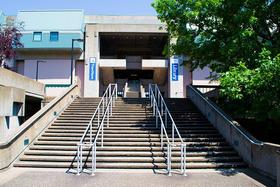- Founded 1982 in the Palm Beaches, the West Palm Beach campus of Lincoln College of Technology has been helping students and business professionals realize their career goals and career aspirations locally, regionally, nationally and internationally. West Palm Beach offers 18-24 month Associate Degree programs, a variety of continuing education certifications for business professionals, and 9 and 12-month diploma programs for those on the career fast track. With morning, afternoon or evening classes, our Lincoln College of Technology programs are designed so that you can study, work, and still have time to devote to life's other responsibilities. This college in South Florida is well regarded within the business community and local employers enthusiastically seek out our graduates. Lincoln College of Technology offers what you need to get your career off to a good start industry-level training with job placement assistance, hands-on training, caring instructors with industry experience.
School Highlights
Lincoln College of Technology-West Palm Beach served 713 students (93% of students were full-time).
The college's student-teacher ratio of 24:1 was higher than the state community college average of 20:1.
Minority enrollment was 67% of the student body (majority Black), which was equal to the state average of 67%.
School Overview
Lincoln College of Technology-West Palm Beach
(FL) Community College Avg.
Carnegie Classification
Item not available
Not applicable, not in Carnegie universe (not accredited or nondegree-granting)
Institution Level
Less than 2 yrs
At least 2 but less than 4 years
Institution Control
Public
Private, for profit
Total Faculty
30 staff
188 staff
Student Body
Total Enrollment
713 students
1,236 students
Student-Teacher Ratio
24:1
20:1
# Full-Time Students
661 students
588 students
# Part-Time Students
52 students
648 students
# Enrollment Undergraduate
770 students
282 students
# Full-Time Undergraduate Students
661 students
587 students
# Full-Time Graduate Students
n/a
295 students
# Part-Time Undergraduate Students
n/a
832 students
# Part-Time Graduate Students
n/a
58 students
Total Dormitory Capacity
n/a
174 students
% Asian
1%
5%
% Hispanic
23%
31%
% Black
34%
19%
% White
33%
33%
% Hawaiian
n/a
2%
% Two or more races
5%
4%
% Non Resident races
n/a
3%
% Unknown races
3%
3%
Diversity Score
0.72
0.75
College Completion Rate (Students who graduate in less than 4 years)
n/a
63%
College Completion Rate (Students who graduate in 4 years or more than 4 years)
n/a
43%
Average Graduate Earnings (10 Years)
$32,700
$31,500
Tuition and Acceptance Rate
In-State Tuition Fees
$15,580
$4,761
Out-State Tuition Fees
$15,580
$11,352
% Students Receiving Some Financial Aid
87%
88%
Median Debt for Graduates
$9,500
$10,250
Median Debt for Dropouts
$4,658
$6,250
Acceptance Rate
n/a
94%
SAT Reading
n/a
442
SAT Math
n/a
429
ACT Composite
n/a
18
ACT English
n/a
18
ACT Math
n/a
18
Source: 2020 (or latest year available) Integrated Postsecondary Education Data System (IPEDS)
Frequently Asked Questions
How much does Lincoln College of Technology-West Palm Beach cost?
Lincoln College of Technology-West Palm Beach's tuition is approximately $15,580 for In-State students and $15,580 for Out-State students.
Recent Articles

The Rise of Technical and Vocational Training in 2025
Explore the 2025 surge in technical and vocational training—enrollment, policy, costs, and why this path is gaining ground for students and parents.

Stackable Credentials: How Community Colleges Advance Careers
Discover how community colleges use stackable credentials to build career pathways, boost earnings, and enable lifelong learning in 2025.

High-Paying Jobs You Can Get with a Community College Degree
Discover top high-paying careers you can launch in 2025 with a community college (associate) degree and high-growth credentials in tech, healthcare and trades.





